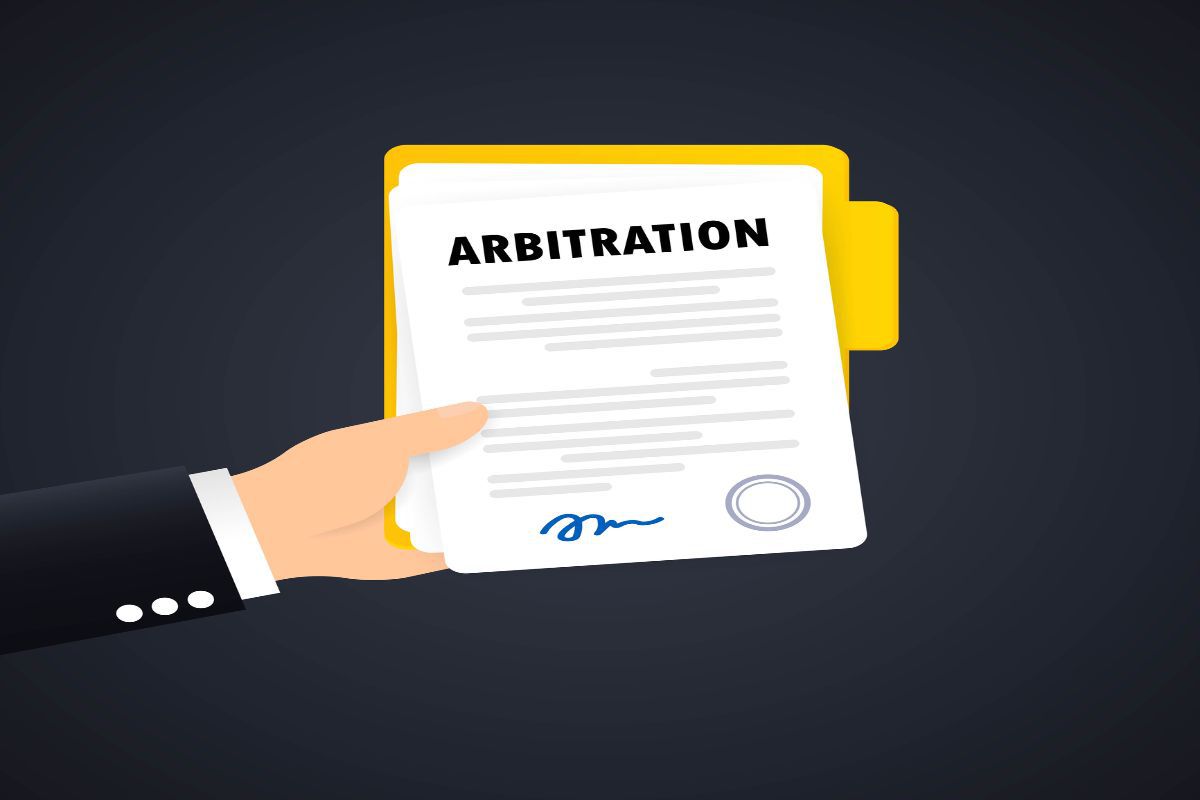Understanding the effect of arbitration agreements is important for Texas business owners. Many contracts that you may need to sign will include arbitration clauses. If you are not sure about the effect of these clauses, you will not know if signing a contract that includes one is right for your business. Your lawyer should review any important contracts that you plan to sign to evaluate their legal impact for you.
What Is an Arbitration Agreement?
An arbitration agreement is a contract that compels the parties to arbitrate legal disputes. Often, an arbitration agreement is a clause in a broader contract involving a business issue. It may be located near the end of the contract, buried in the fine print. It is very important that you and your lawyer review all parts of any contract you plan to sign, in part so that you can spot any arbitration clauses.
When you sign a contract that contains an arbitration clause, you agree to arbitrate disputes arising out of the contract with the other party to the contract. Often, the clause describes the scope of the disputes that must be arbitrated. If you have a dispute of this type and you file a lawsuit in court, the other party can ask the judge to compel your dispute to arbitration. The reverse is true if someone files a lawsuit against you on a topic covered by your arbitration agreement with them.
What Does Agreeing to Arbitrate Mean?
Arbitration is an alternative dispute resolution method outside of court. A court can compel you to arbitrate a dispute based on a valid arbitration agreement. If no one has filed a lawsuit yet, you can agree with another party to arbitrate your dispute without ever going to court.
When you go to arbitration, you invite one or more neutral, third-party arbitrators (such as retired judges or experienced lawyers) to hear the sides of your dispute. They listen to witness and expert testimony, review relevant documents, and consider the arguments on both sides. Then they make a decision about your dispute. The written statement of decision can be confirmed and enforced in court, if needed. Arbitration is somewhat less formal than court itself, and it can be less time-consuming.
Should You Agree to Arbitrate?
Because arbitration is less formal and organized differently than court, there are some important distinctions between the two that could affect your decision to sign an arbitration agreement. For example, when you go to court, you have the benefit of the many procedural rules listed in Texas or federal laws. Arbitrations have their own set of different procedural rules. You may agree to some of them in the arbitration clause. When you choose arbitrators, you may agree to additional rules. Some of these rules could limit your ability to present your case, such as limitations on the number of witnesses or experts. You might also have significant limitations on the time you have to prepare your case.
Arbitration could have additional restrictions that you might not realize until you try to use this process. There are many, many federal and state court decisions about arbitration agreements and the arbitration process, including in specific industries. Courts have made rulings on the enforceability of certain arbitration agreements, which have resulted in cases going to court instead of arbitration or vice versa. The venue for your dispute could have a big impact on its outcome.
Because of the many pros and cons of arbitration, you need to discuss your decision to sign any contract containing an arbitration clause with a lawyer. It is especially true for contracts that you want your employees to sign or contracts that could significantly affect your bottom line. You must understand your rights and the restrictions on your rights that an agreement to arbitrate could affect. At our firm, experienced business lawyers can assist you with arbitration agreement questions.
Questions about Arbitration? Contact Henke, Williams & Boll
As experienced Houston business lawyers, we help our clients understand the impact of contracts they signed or want to sign. If you have questions about an arbitration clause and what it means for your business, give us a call. Our advice is not “one-size-fits-all,” but is tailored to your unique situation. To set up a consultation, call (713) 936-5521 or use our convenient Contact Form.


